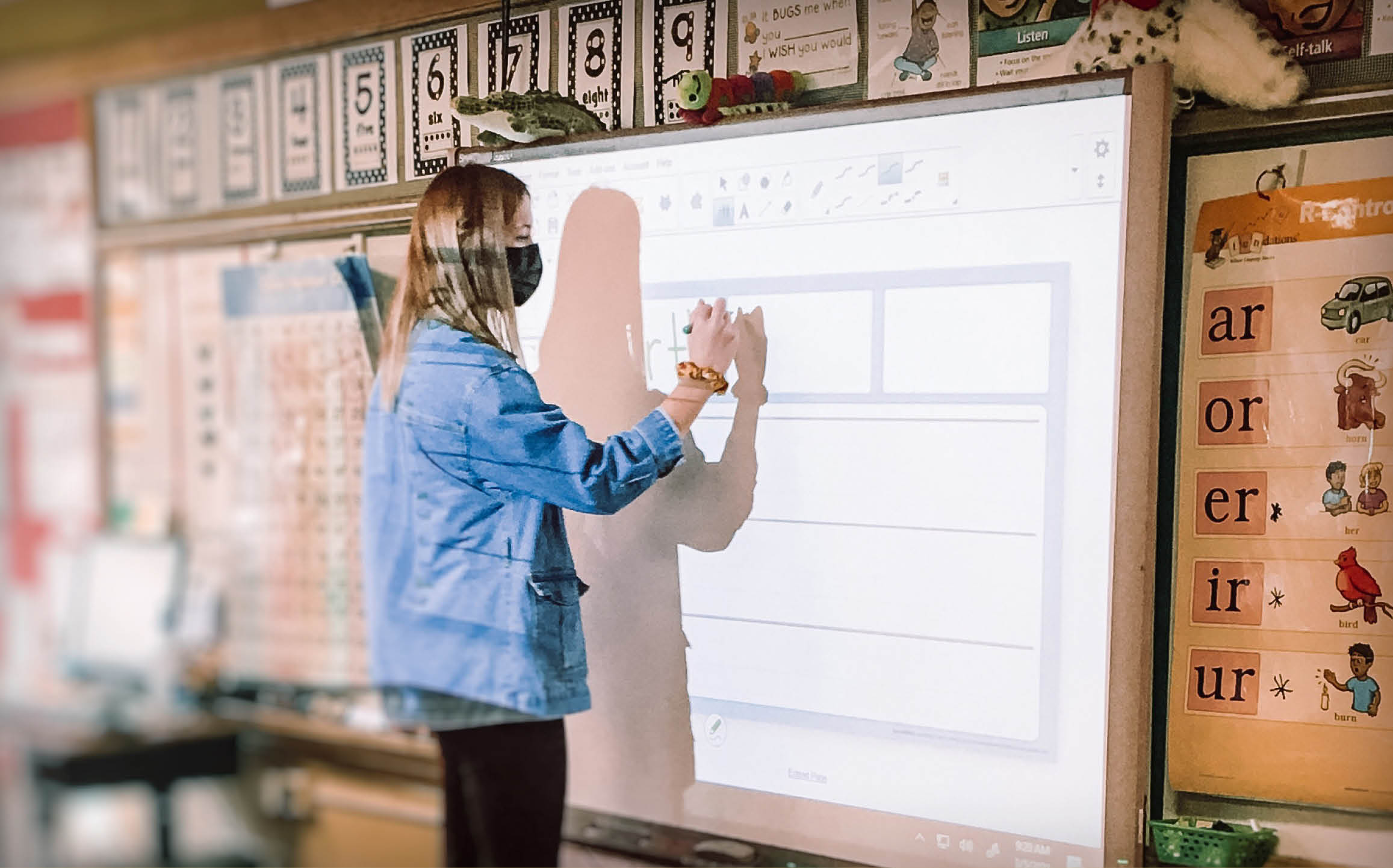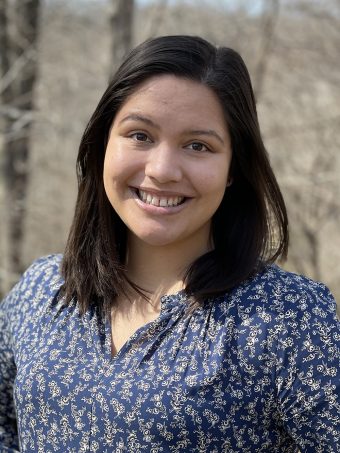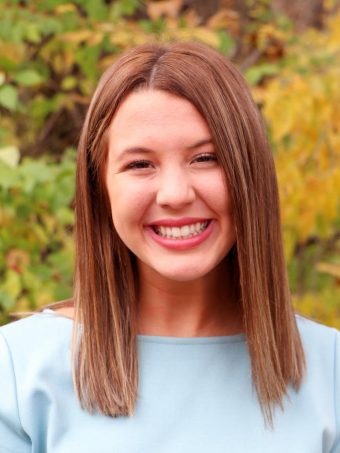MU student-teachers get hands-on classroom experience
Posted in: News | UncategorizedIn an unusual year for schools, student-teachers from the College of Education are still finding ways to engage with students and learn to lead classrooms of their own.
Contact: Kenny Gerling, gerlingk@missouri.edu

When Columbia Public Schools resumed in-person learning in January, another — though slightly older — group of students also headed to the classroom. Among them was Janelle Bautista, a senior middle-school science education major at the University of Missouri, who began student-teaching with an eighth-grade class at Jefferson Middle School.
“The students enjoy being back in person,” said Bautista, who had assisted the same class virtually since September. “There are only 9 or 10 students in the classroom at a time, so it’s helped in getting to know them, and with classroom management.”
Columbia Public Schools is one of more than 20 districts around the state hosting student-teachers from the MU College of Education. Hands-on experience begins for most education majors their sophomore year and increases throughout their time at Mizzou. During the final semester of their senior year, students traditionally are assigned a host teacher and enter a classroom full time.
Though the pandemic has profoundly affected the way elementary and secondary education classes are taught, Tigers are still in schools around the state — working every day to help students learn while also building the skills they’ll need to be successful in their own future classrooms.
An experience like no other
Bautista said some of the changes she’s experienced, such as transitioning from paper assignments to iPads, showed her how to successfully use technology in her own lessons. But she said nothing replaces working in-class with students. “COVID-19 is an opportunity to try resources we’ve not previously tried and to figure out what works and what doesn’t,” she said. “But it also highlights the importance of building relationships with students and getting them to engage with each other. That’s especially important for my age group.”
Teresa Toarmina is a senior elementary education major who is teaching second grade at Parkade Elementary School in Columbia. Toarmina said that despite her coursework and a required pre-service orientation, there was still plenty to learn after applying concepts in the field. “They prepare you really well, but — for example — when working with a student who isn’t cooperating with how you’re teaching, that is something you have to learn how to address,” she said. “You just have to do it.”
In addition to expected challenges, Toarmina said some safety precautions — though essential — have required her to get creative and build bonds with students through things like jokes, personalized notes and assigning special roles.
“The most important thing I’ve found is engaging with them and getting their attention,” Toarmina said. “A lot of students in younger grades rely on being able to visually make connection between what they’re hearing and what the teacher is doing.”
The value of hands-on learning
Kimberley Nuetzmann, director of field experiences in the College of Education, said that close collaboration with school districts around the state helped Mizzou students safely return to classrooms. “At MU, we work really hard to partner with districts, to engage with them and to learn from them,” she said. “We were able to reach out and learn what modality they’re in and how our student-teachers could fit in and be an asset in that setting.”
All student-teachers were also required to follow Show Me Renewal safety guidelines (the same that apply to Mizzou’s campus) in addition to those of their school district.
Laurie Kingsley, director of teacher education for Learning, Teaching and Curriculum in the College of Education, said the uncertainties of teaching during a pandemic have given students a glimpse of some important issues facing educators. “We’ve learned a lot about inequities in education and about who has access to student resources such as technology,” she said. “We talk all the time about the importance of compassion, empathy and flexibility, but now they are seeing all of this firsthand and learning those lessons that are essential to being good teachers.”
A class of their own
The hard work has paid off for Toarmina and Bautista. Both have recently accepted teaching positions in the Kansas City area. Despite the challenges of this year, they said the opportunity to be student-teachers, and the support provided by Mizzou faculty and staff, has been vital.
“I’m so thankful that they got us in the classroom,” Toarmina said. “I appreciate how good they’ve been at communicating and at how humbly they’ve approached every situation.”
Bautista agreed, and said her time as a student-teacher has been empowering. “It helps so much for students to see me as a teacher and for me to feel like a teacher in the classroom,” she said.

